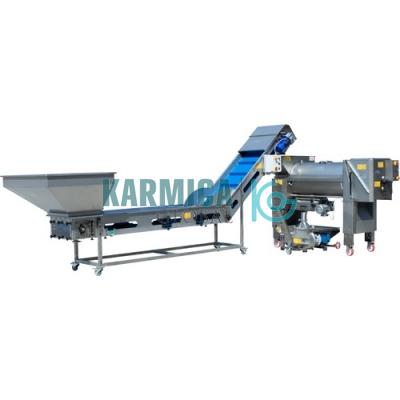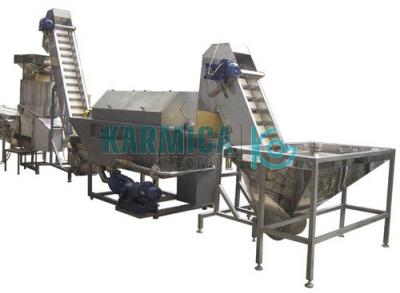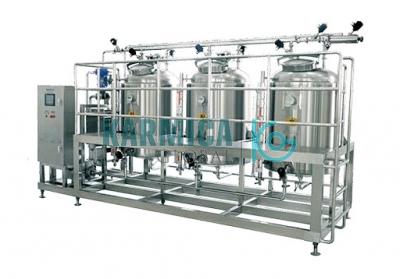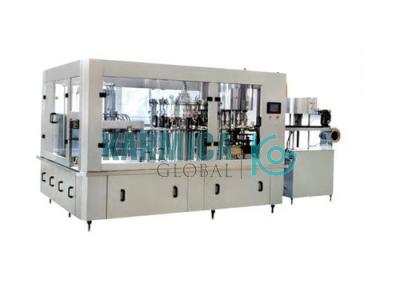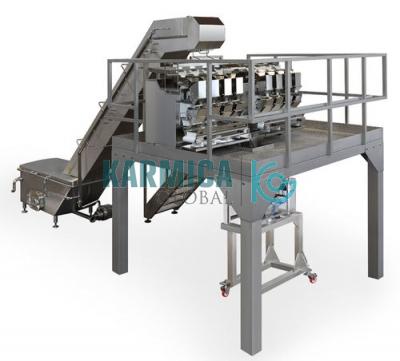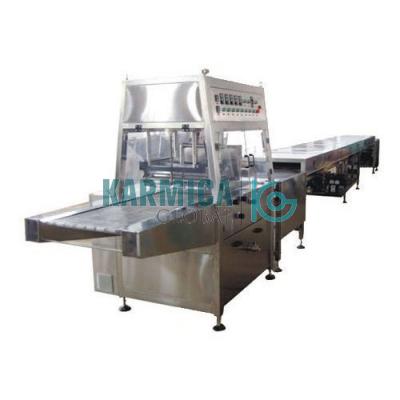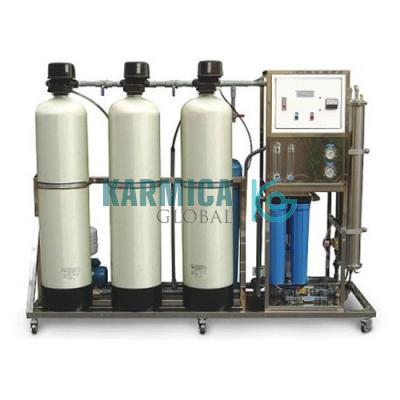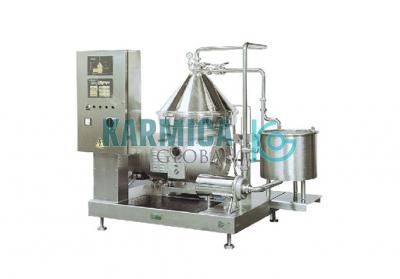
Cheese Processing Plant
Cheese making plant involves a number of main stages which are common to most types of cheese.
The cheese milk is pretreated, after addition of a bacteria culture appropriate to the type of cheese, and mixed with rennet. The enzyme activity of the rennet causes the milk to coagulate to a solid gel known as coagulum. This is cut with special cutting tools into small cubes of the desired size to facilitate expulsion of whey. During the rest of the chesse making process the bacteria grow and form lactic acid, and the curd grains are subjected to mechanical treatment with stirring tools, while at the same time the curd is heated according to a preset program. The combined effect of these three actions – growth of bacteria, mechanical treatment and heat treatment – results in syneresis, i.e. separation of whey from the curd grains. The finished curd is placed in cheese moulds, which determine the shape of the finished cheese. The cheese is pressed, either by its own weight or by applying pressure to the moulds. Finally, the cheese is coated, wrapped or packed. Most kinds of cheese will ripened in the ripening room for deferent period.
CHEESE PRODUCTION LINE BENEFIT
1.Opportunity to realize products with customized recipes.
2.Opportunity to produce more than one product with the same cheese processing line.
3.High quality of the final product keeping an elevated nutritional value.
4.Wide customization of the final product.
5.Maximum yield, minimum production waste.
6.Highest energy savings thanks to the most advanced technologies.
7.Complete line supervision system through monitoring of every process phase.
8.Recording, visualization and printing of all daily production data.
|
Working capacity |
from 1 tons/d up to 50 tons/d |
|
Products |
- Cheddar cheese |
|
- Emmenthal cheese |
|
|
- Gouda cheese |
|
|
- Tilsiter cheese |
|
|
- Mozzarella cheese |
|
|
- Blue veined cheese |
|
|
- Camembert cheese |
|
|
- Cottage cheese |
|
|
- Quarg |
|
|
- Processed cheese |
Cheese Processing Plant Related Products
More products related to Cheese Processing Plant
